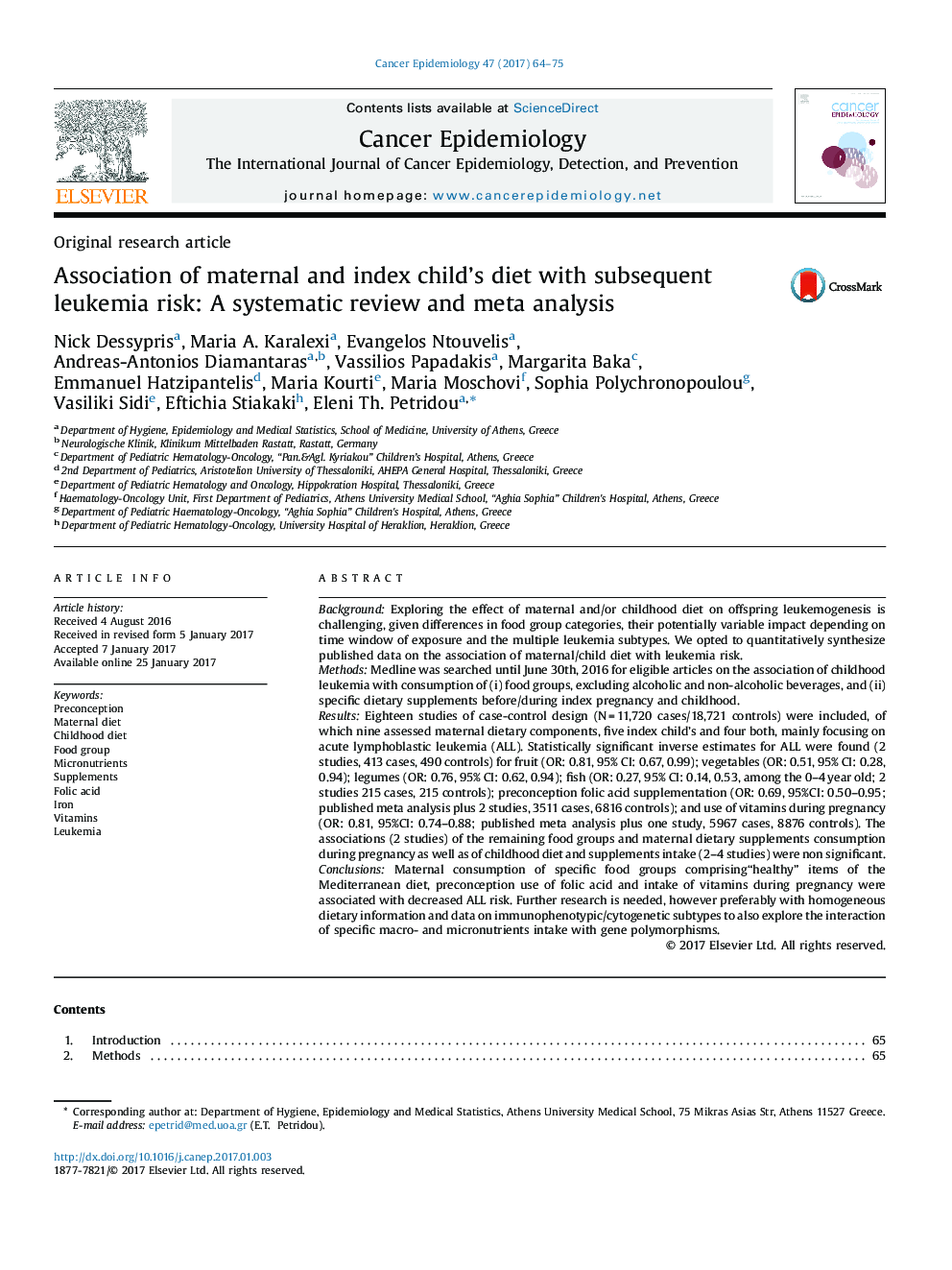| کد مقاله | کد نشریه | سال انتشار | مقاله انگلیسی | نسخه تمام متن |
|---|---|---|---|---|
| 5524915 | 1546528 | 2017 | 12 صفحه PDF | دانلود رایگان |
- Assessment of critical time windows and of the impact of diet on childhood leukemogenesis is a complex undertaking.
- Maternal adherence to Mediterranean diet components seemed to be inversely linked to childhood ALL risk.
- Preconception folic acid supplementation and vitamin intake during pregnancy decreased childhood ALL risk.
- Index child's dietary habits did not seem to be associated with subsequent leukemia risk.
- Further research is needed entailing uniformly standardized dietary information and variable study designs.
BackgroundExploring the effect of maternal and/or childhood diet on offspring leukemogenesis is challenging, given differences in food group categories, their potentially variable impact depending on time window of exposure and the multiple leukemia subtypes. We opted to quantitatively synthesize published data on the association of maternal/child diet with leukemia risk.MethodsMedline was searched until June 30th, 2016 for eligible articles on the association of childhood leukemia with consumption of (i) food groups, excluding alcoholic and non-alcoholic beverages, and (ii) specific dietary supplements before/during index pregnancy and childhood.ResultsEighteen studies of case-control design (NÂ =Â 11,720 cases/18,721 controls) were included, of which nine assessed maternal dietary components, five index child's and four both, mainly focusing on acute lymphoblastic leukemia (ALL). Statistically significant inverse estimates for ALL were found (2 studies, 413 cases, 490 controls) for fruit (OR: 0.81, 95% CI: 0.67, 0.99); vegetables (OR: 0.51, 95% CI: 0.28, 0.94); legumes (OR: 0.76, 95% CI: 0.62, 0.94); fish (OR: 0.27, 95% CI: 0.14, 0.53, among the 0-4Â year old; 2 studies 215 cases, 215 controls); preconception folic acid supplementation (OR: 0.69, 95%CI: 0.50-0.95; published meta analysis plus 2 studies, 3511 cases, 6816 controls); and use of vitamins during pregnancy (OR: 0.81, 95%CI: 0.74-0.88; published meta analysis plus one study, 5967 cases, 8876 controls). The associations (2 studies) of the remaining food groups and maternal dietary supplements consumption during pregnancy as well as of childhood diet and supplements intake (2-4 studies) were non significant.ConclusionsMaternal consumption of specific food groups comprising“healthy” items of the Mediterranean diet, preconception use of folic acid and intake of vitamins during pregnancy were associated with decreased ALL risk. Further research is needed, however preferably with homogeneous dietary information and data on immunophenotypic/cytogenetic subtypes to also explore the interaction of specific macro- and micronutrients intake with gene polymorphisms.
Journal: Cancer Epidemiology - Volume 47, April 2017, Pages 64-75
